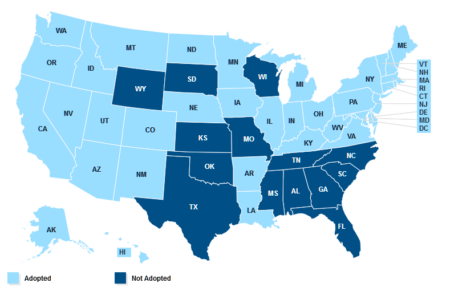Dandelion power, Georgia suing drug companies, hospital transparency, and more
05 Jan 2019
Posted by Andrew Kantor
Georgia sues drug companies over opioids
No, this isn’t part of the Very Big Opioid Lawsuit in Ohio. Georgia Attorney General Chris Carr is filing his own, state-level suit against 14 drug makers and distributors, demanding that they reimburse Georgia for what it’s spent treating people.
The list of defendants: Actavis, Allergan, AmerisourceBergen, Cardinal Health, Endo, J M Smith, Mallinckrodt, McKesson, Par Pharmaceutical, Purdue Pharma, Qualitest, SpecGx, Teva, and Watson Pharmaceuticals.
The deets, according to Carr:
The lawsuit also alleges that the named opioid distributors supplied, sold and placed into the stream of commerce prescription opioids, without fulfilling their legal obligations to monitor, detect, report, investigate or otherwise prevent the fulfillment of suspicious orders. This behavior led to the predictable diversion of these dangerous drugs for illegitimate and/or non-medical purposes.

“And dandelions and devil grass are better!”
As one of those rare people who actually likes dandelions, it’s good to see that they’re chock full of potentially beneficial chemicals — antioxidants, antihyperglycemics, and even anti-inflammatory compounds. File under “More research needed.”
* Because they bend you over and turn you away from all the people in the town for a little while and sweat you and get you down where you remember you got a nose again. And when you’re all to yourself that way, you’re really proud of yourself for a little while; you get to thinking things through, alone. Gardening is the handiest excuse for being a philosopher. Nobody guesses, nobody accuses, nobody knows, but there you are, Plato in the peonies, Socrates force-growing his own hemlock. A man toting a sack of blood manure across his lawn is kin to Atlas letting the world spin easy on his shoulder.”
Hospital transparency
A couple of stories on the topic. First, a new CMS rule took effect requiring hospitals to post their list prices online.
The big deal is in a small part of the rule: Those prices must be machine-readable. So what? you say. It means that people can develop comparison tools: “How much is knee replacement at hospitals within 50 miles of the 30328 ZIP Code?”
Second, Georgia’s non-profit hospitals aren’t exactly transparent about their finances, even when they’re publicly owned. But that might be about to change:
A powerful group of state lawmakers appears concerned about the secrecy and business practices of some nonprofits that operate Georgia hospitals, especially the nonprofits that run hospitals owned by public hospital authorities.
Let Grandpa have his hooch
“Moderate Drinking Not Harmful for Seniors With Heart Failure”
Elsewhere: Lobster edition
Maine became the 36th state (plus D.C.) to adopt Medicaid expansion for its residents, giving about 70,000 more Mainers (Mainians? Mainites?) access to healthcare. Voters there approved the expansion a year ago, but the state’s Republican governor refused to enact it. He was ousted in November, and newly elected Gov. Janet Mills signed Executive Order 1 on her first day in office.
Even better, she made the coverage retroactive to July 2, “so Mainers who applied for Medicaid in 2018 but were denied benefits and incurred expenses that should have been covered by Medicaid will be reimbursed.”



